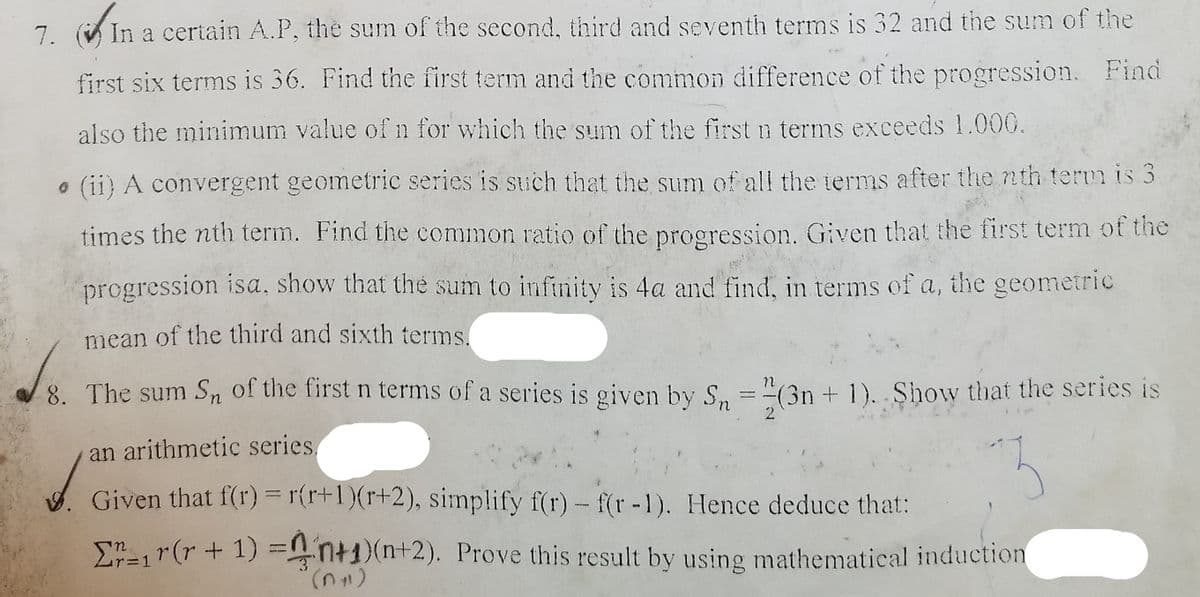Algebra & Trigonometry with Analytic Geometry
13th Edition
ISBN:9781133382119
Author:Swokowski
Publisher:Swokowski
Chapter10: Sequences, Series, And Probability
Section10.3: Geometric Sequences
Problem 81E
Related questions
Concept explainers
Equations and Inequations
Equations and inequalities describe the relationship between two mathematical expressions.
Linear Functions
A linear function can just be a constant, or it can be the constant multiplied with the variable like x or y. If the variables are of the form, x2, x1/2 or y2 it is not linear. The exponent over the variables should always be 1.
Question
Solve Q8 & 9 Showing detailly all steps

Transcribed Image Text:7. ( In a ceriain A.P, the sum of the second, third and seventh terms is 32 and the sum of the
first six terms is 36. Find the first term and the common difference of the progression. Find
also the minimum value of n for which the sum of the first n terms exceeds 1.000.
o (ii} A convergent geometric series is such that the sum of all the ierms after the nth term is 3
times the nth term. Find the common ratio of the progression. Given that the first term of the
progression isa, show that the sum to infinity is 4a and find, in terms of a, the geometric
mean of the third and sixth terms.
8. The sum Sn of the first n terms of a series is given by S, ="(3n + 1). Show that the series is
an arithmetic series,
V Given that f(r) = r(r+1)(r+2), simplify f(r)- f(r -1). Hence deduce that:
E-1r(r + 1) =n+1)(n+2). Prove this result by using mathematical induction
%3D
Expert Solution
This question has been solved!
Explore an expertly crafted, step-by-step solution for a thorough understanding of key concepts.
Step by step
Solved in 2 steps with 2 images

Knowledge Booster
Learn more about
Need a deep-dive on the concept behind this application? Look no further. Learn more about this topic, algebra and related others by exploring similar questions and additional content below.Recommended textbooks for you

Algebra & Trigonometry with Analytic Geometry
Algebra
ISBN:
9781133382119
Author:
Swokowski
Publisher:
Cengage


Glencoe Algebra 1, Student Edition, 9780079039897…
Algebra
ISBN:
9780079039897
Author:
Carter
Publisher:
McGraw Hill

Algebra & Trigonometry with Analytic Geometry
Algebra
ISBN:
9781133382119
Author:
Swokowski
Publisher:
Cengage


Glencoe Algebra 1, Student Edition, 9780079039897…
Algebra
ISBN:
9780079039897
Author:
Carter
Publisher:
McGraw Hill

College Algebra
Algebra
ISBN:
9781305115545
Author:
James Stewart, Lothar Redlin, Saleem Watson
Publisher:
Cengage Learning